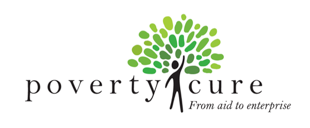Stewards in the Image of God
The biblical account of humans made in the image of God also undergirds the idea of humans as stewards of the rest of creation. It’s been argued that the West is the first civilization in history to extend the rights of private property to a substantial percentage of its members, in part because of this idea that humans are made in the image of God and given stewardship responsibility by God. This view of the human person suggests that such creatures are meant to have a stewardship responsibility over what has come into their possession by honest means, a responsibility that should be honored and encouraged by the state rather than violated. This view of the human person also emphasizes the creative capacity of humans, since they are understood to be made in the image of the Creator. Materialist anthropologies have tended to lapse into fixed-pie or zero-sum-game thinking when it comes to questions of wealth and poverty, whereas the Judeo-Christian understanding of humans as sub-creators has encouraged enterprise and wealth creation for rich and poor alike.
Made in the Image of God—Influence on the U.S. Declaration of Independence
The U.S. Declaration of Independence contains arguably the most famous assertion of human equality: “We hold these truths to be self-evident, that all men are created equal, that they are endowed by their Creator with certain unalienable Rights, that among these are Life, Liberty and the pursuit of Happiness.” It’s clear from the various provisions of the Declaration of Independence and the U.S. Constitution that the American Founders were not calling for a society that pursued equality of wealth, rank or ability. Some have argued that the equality the American Founders had in mind is equality in the eyes of the law. However, the American Founders argued from an inherent and self-evident equality to unalienable rights for all people. That they could declare this idea to be self-evident speaks to how deeply the doctrine of the imago dei (made in the image of God) had penetrated their thinking.
Made in the Image of God—A Lost Foundation
In the modern era, the principle of human equality has been detached from its theological foundation. In this form the institution of private property has been attacked as making people “unequal,” since some have an enormous share of private property while others have little more than the clothes on their back. This fixation on the wealth gap is a confusion made easier by a secular culture that has lost connection with the ultimate source and nature of human equality. Possessions are what one has, not what one is. Moreover, only human beings can own property, a sign of their intrinsic human dignity.
The principle of equality stripped of its theological foundation also has encouraged a view of the family as an oppressive construct of male power. The reality is that where the institution of the family has been dramatically undermined—as in the case of “underclass” cultures marked by high rates of out-of-wedlock birth and absentee fathers—the culture also sees high levels of social pathology, including increased violence against women and girls.
Conversely, the principle that every human is made in the image of God has worked gradually to enhance the rights of women and children in the West, both within and beyond the institution of the family. Although many of these rights were slow in coming to women, the Christianized West was nevertheless the first civilization in history to extend a robust array of human rights to women on a broad scale. Today the doctrine of imago dei is a crucial instrument in the struggle to extend the right to life to unborn babies, and to preserve the right to life for old people who in some states in the U.S. and in some European countries are increasingly under pressure to opt for forms of active euthanasia.
Made in the Image of Relativism
Although the Judeo-Christian worldview has encouraged the principle of human equality in the West, an understanding of equality divorced from its theological foundations sees Christianity as the enemy of human equality. According to this view, Christianity undermines equality because it is intolerant of other beliefs and practices. On close inspection this attack turns out to be an attack on many religions since it rejects the idea of a transcendent moral order and ends in moral relativism. By removing any firm basis for distinguishing absolute good from evil, the relativist loses the wherewithal to make a moral case for basic human rights.
These various misunderstandings concerning the nature of human equality spring from a failure to recognize that the principle of human equality at the foundation of the freedom project in the West doesn’t insist that humans should be equal in rank or wealth; rather it insists that every human possess an inherent dignity and worth that governments and individuals should respect. The recognition of this distinction, along with an appreciation for the theological basis for the development of human rights in the West, can play a crucial role in further extending human rights to the poor of the developing world.


